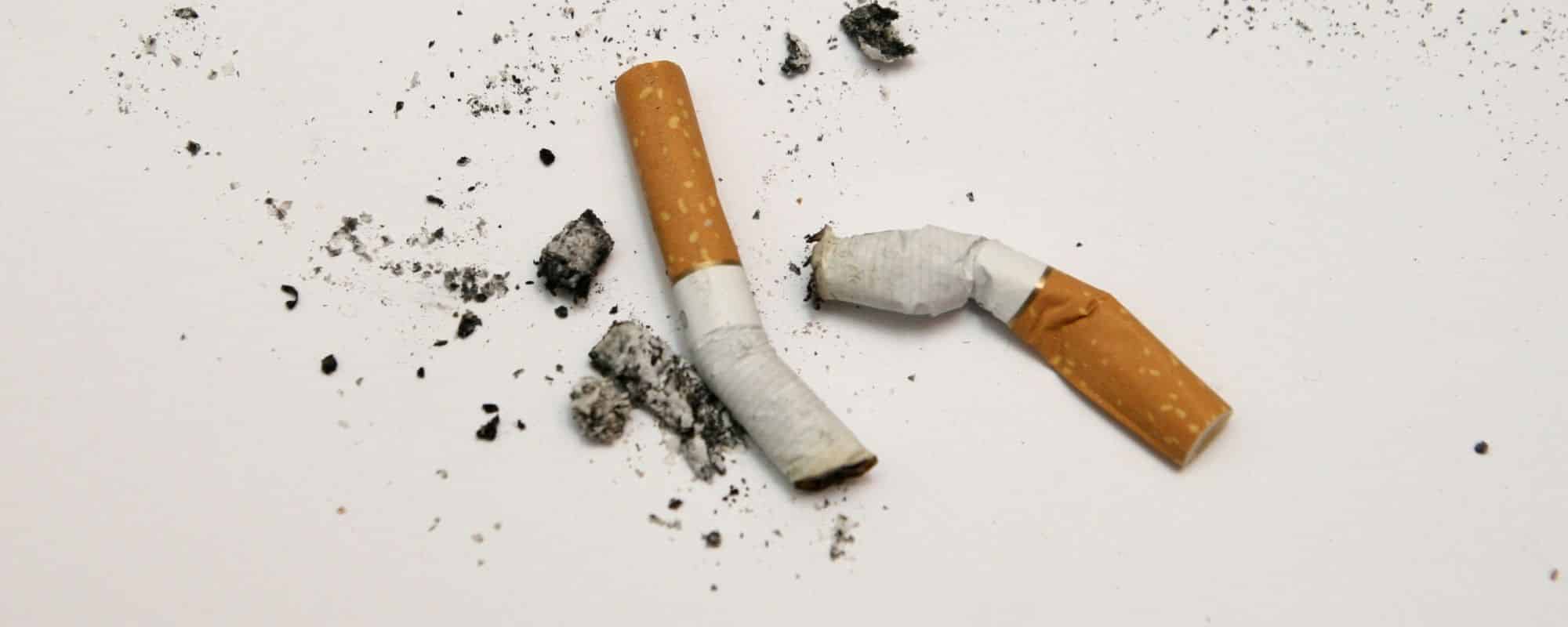Humans and substance use go back a long way. Evidence from cultures all around the world shows that substances have been a part of our history for thousands of years. Substances like alcohol, marijuana, and opiates derived from poppy plants are the most often found when studying ancient civilizations. But use of these substances has not always been beneficial to individuals and societies. Today, around 30% of Americans meet the criteria for an alcohol abuse disorder at some point in their life.
As science and medicine evolved, people began noticing the harm caused by addictive substances. American Founding Father and physician Benjamin Rush was one of the first to highlight the dangers of alcoholism during the late 1700s. He outlined alcohol abuse as a disease rather than a choice on the part of the drinker. This classification of addiction as a disease is a pillar of treatment today.
In the 1970s, addiction treatment took another step forward with the passage of the Comprehensive Alcohol Abuse and Alcoholism Prevention, Treatment, and Rehabilitation Act of 1970. It was also known as the Hughes Act. Named for Senator Harold Hughes, who himself struggled with alcohol abuse, the act added a new section to the National Institute of Mental Health called the National Institute on Alcohol Abuse and Alcoholism. The goal was to research and study alcoholism to better society.
Since then, addiction treatment has evolved into a science that uses evidence-based treatments. One of the most common treatment paths is the use of a 12 step program. The original 12 step program was Alcoholics Anonymous. Since its creation in the 1930s, many other similar programs came about to assist with other substance use disorders and behavioral issues.
Some find that 12 step programs provide valuable assistance when getting sober. Others may find that following the twelve steps helps their recovery. Some may find that professional care from an addiction treatment center like Vogue Recovery Center offers a better chance of turning things around.
What Is a 12 Step Program?
When someone struggles with addiction or mental health, getting help is the most important thing to do. The twelve steps are peer support groups designed to help someone achieve long-term sobriety. The process involves following twelve steps exactly and in order. These steps are always the same in all 12 step programs.
Some examples of 12 step programs include:
- Alcoholics Anonymous (AA)
- Narcotics Anonymous (NA)
- Gamblers Anonymous (GA)
- Food Addicts Anonymous (FAA)
- Sex Addicts Anonymous (SA)

Narcotics Anonymous encompasses all drugs, but there are specific groups that meet for issues with specific drugs. Those include substances like cocaine, heroin, crystal meth, and even nicotine. The sense of community and support from others is often valuable in recovery as someone can come to realize they aren’t alone on their journey to a better life.
What is Alcoholics Anonymous?
Alcoholics Anonymous is a self-help organization that provides mutual support to people struggling with alcohol addiction. Bill Wilson and Dr. Bob Smith founded the program in 1935 in Akron, Ohio. Its principles follow a 12-step approach to recovery. The 12 steps are the same for AA, NA, and other behavioral programs like gambling or sex.
Through these steps, members change their attitudes toward drinking and focus on achieving sobriety. 12 Step oriented recovery programs urge newly sober individuals to attend meetings frequently. That’s because AA meetings provide members with a safe space for sharing experiences related to addiction.
They also develop friendships and receive emotional support from their peers in recovery. AA meetings are free and are peer-led; that is, a professional therapist or alcohol and drug counselor may or may not be in attendance.
The Twelve Steps
These are the 12 Steps of Alcoholics Anonymous®, which forms the template for all 12 Step programs
1. We admitted we were powerless over alcohol — that our lives had become unmanageable.
2. Came to believe that a Power greater than ourselves could restore us to sanity.
3. Made a decision to turn our will and our lives over to the care of God as we understood Him.
4. Made a searching and fearless moral inventory of ourselves.
5. Admitted to God, to ourselves, and to another human being the exact nature of our wrongs.
6. Were entirely ready to have God remove all these defects of character.
7. Humbly asked Him to remove our shortcomings.
8. Made a list of all persons we had harmed, and became willing to make amends to them all.
9. Made direct amends to such people wherever possible, except when to do so would injure them or others.
10. Continued to take personal inventory and when we were wrong promptly admitted it.
11. Sought through prayer and meditation to improve our conscious contact with God as we understood Him, praying only for knowledge of His will for us and the power to carry that out.
12. Having had a spiritual awakening as the result of these Steps, we tried to carry this message to alcoholics, and to practice these principles in all our affairs.
Narcotics Anonymous and other 12 step programs for behaviors like gambling or sex addiction follow the same steps of recovery.
Are There Alternatives to 12 Step Programs?
Alcoholics Anonymous and similar groups have saved countless lives over the years. But some find that the program isn’t for them. Often the 12 steps are too rigid and lack flexibility for individuality. Some may also fear judgement in an AA meeting because of the spiritual nature of the group’s principles. AA does not promote any particular faith, but its foundational steps have spiritual undertones. Some people feel that having to “surrender” to their addiction and accept the help of a higher power goes against their sense of self-determination and personal accomplishment.
There are alternatives to traditional 12 step treatment programs that offer similar advantages, but in a more secular way. Some of the most popular alternatives to 12 step programs include:
SMART Recovery
SMART Recovery stands for Self-Management and Recovery Training. It is an international non-profit organization that provides tools and techniques to help individuals gain control over negative behavior like drug or alcohol abuse. Treatment includes things like:
- Learning to manage triggers
- Developing coping strategies
- Identifying high-risk situations
- Maintaining your motivation to achieve long term sobriety
Participants learn how to manage triggers, develop coping strategies, identify high-risk situations, and maintain motivation for recovery. SMART also emphasizes developing self-efficacy – a sense of control in life and the ability to make positive changes. The program teaches participants to build on their strengths, rather than focusing on perceived weaknesses. It also encourages personal responsibility within recovery – allowing individuals to take an active role in their healing process. SMART Recovery meetings take place online or in person all around the world.
Refuge Recovery
Refuge Recovery is an evidence-based program that offers a comprehensive approach to recovery from addiction. The program follows the Four Noble Truths and Eightfold Path of Buddhism. It is not necessary to be Buddhist to attend. Refuge Recovery draws on Buddhist philosophy, mindfulness practices, meditation techniques, and cognitive behavior therapy (CBT) principles to help individuals develop a compassionate understanding of their suffering and learn tools to break free from addictive patterns.
The program emphasizes building self-awareness through meditation and developing insight into one’s thoughts and behaviors. This self-reflection can lead to greater compassion towards oneself, which in turn leads to healthier relationships with others. Through supportive community meetings, participants focus on maintaining sobriety while learning to forgive themselves and others for past harm.
Women for Sobriety
Women for Sobriety (WFS) is a non-profit organization that provides emotional support to women who are struggling with alcohol and drug addiction. Founded in 1976, WFS has developed an evidence-based treatment program called the “New Life Program” which focuses on self-esteem building, changes in attitude and lifestyle habits, and personal development. The program helps women build the skills needed to stay sober and have positive relationships with family and friends. Participants share their stories of recovery at these meetings. They also take part in activities such as journaling and visualization exercises. Women for Sobriety strives to create an empowered, self-sufficient sisterhood of women who have recovered from alcohol and drug addiction.

Secular Organizations for Sobriety (S.O.S.)
S.O.S. is a nonreligious program founded by Jim Christopher in 1985. The goal is to help individuals struggling with addiction achieve and maintain sobriety. The programs don’t rely on religious beliefs or practices. The organization provides peer support, educational resources, and personal guidance to help people take responsibility for their recovery from substance abuse or other addictive behavior. The program assists individuals who are looking for self-empowerment as they work towards achieving recovery through abstinence alone. Members attend meetings that provide encouragement and support. They also involve participating in activities like:
- Yoga classes,
- Art therapy
- Educational seminars
LifeRing Secular Recovery
LifeRing Secular Recovery is a non-profit, international organization that offers support to individuals in overcoming substance use and mental health challenges. LifeRing takes an empowering approach to recovery. It emphasizes the importance of self-empowerment and individual choice. The organization promotes self-directedness. Each member develops their own recovery plan.
Vogue Recovery Center is a treatment provider for addiction and mental health disorders. Many have tried 12-step programs for substance abuse and mental health but didn’t have success. A typical saying in addiction recovery is “Nothing changes if nothing changes,” so it may be time to find a treatment provider with a focus on evidence-based and holistic care.
Vogue offers a full continuum of care from detox to aftercare and sober living. Our team of professional therapists and clinicians helps each client reach their goal of sobriety. Contact us today to learn more or to verify your insurance and overcome substance use disorders that are ruining your life.
References:
- https://www.aa.org/the-twelve-steps
- https://www.niaaa.nih.gov/our-work/history-niaaa
- https://www.ncbi.nlm.nih.gov/pmc/articles/PMC3860535/
- https://www.smithsonianmag.com/history/chart-1790-lays-out-many-dangers-alcoholism-180954777/
- https://www.tandfonline.com/doi/abs/10.1080/09687637.2020.1844638?journalCode=idep20

Evan Gove

Latest posts by Evan Gove (see all)
- Dangers of Mixing Prozac and Alcohol - September 10, 2024
- Is Prednisone Addictive? - September 9, 2024













